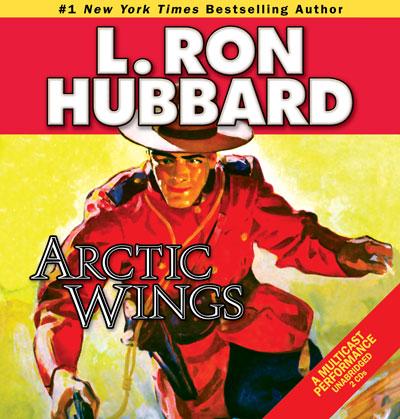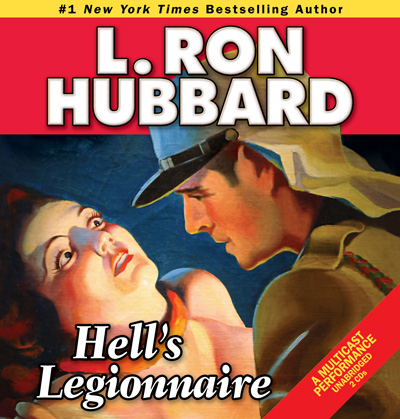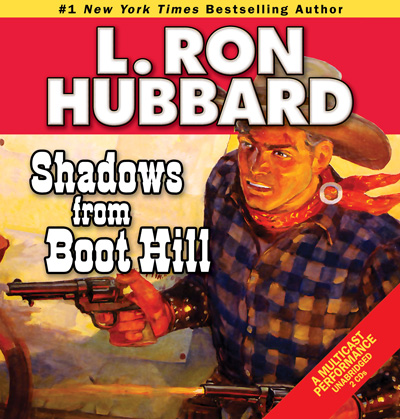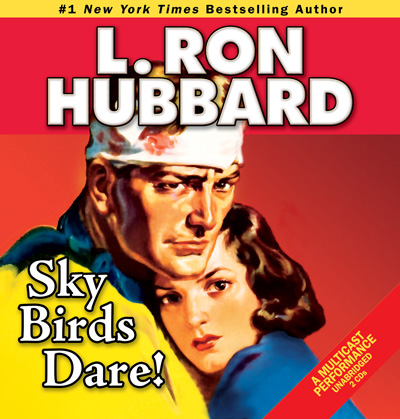Six-Gun Caballero Glossary
Stories from the Golden Age reflect the words and expressions used in the 1930s and 1940s, adding unique flavor and authenticity to the tales. While a character’s speech may often reflect regional origins, it also can convey attitudes common in the day. So that readers can better grasp such cultural and historical terms, uncommon words or expressions of the era, the following glossary has been provided.
¡Abajo los renegados!: (Spanish) Down with the renegades!
Ai: used as an utterance of pity, pain, anguish, etc.
amigos míos: (Spanish) my friends.
arroyo: (chiefly in southwestern US) a small, steep-sided watercourse or gulch with a nearly flat floor, usually dry except after heavy rains.
bag of breeze: windbag; an empty, voluble, pretentious talker.
baile: (Spanish) dance.
Barbary Coast: the waterfront district of San Francisco in the nineteenth century, notorious for its cheap bars and nightclubs, prostitutes, gambling houses and high incidence of crime.
barrio: (Spanish) neighborhood.
beeves: plural of beef, an adult cow, steer or bull raised for its meat.
blue chip: a poker chip having a high value.
bolero: a jacket ending above or at the waistline, with or without collar, lapel and sleeves, worn open in front.
bowser: a gun.
caballero: (Spanish) gentleman.
calabozo: (Spanish) jail.
carbine: a short rifle used in the cavalry.
Castilian: a native or inhabitant of Castile, a former kingdom comprising most of Spain.
charqui: (Spanish) jerked beef; beef cut into long strips and dried in the wind and sun.
cock-fight: an organized fight between two roosters, each of which is equipped with sharp metal spurs, in front of spectators who often make bets on the outcome.
cold-decked: to cheat by use of a cold deck. A cold deck is a deck of playing cards arranged in a preset order designed to give a specific outcome when the cards are dealt. It is switched with the deck actually being used in the game to the benefit of the player and/or dealer making the switch. The term itself refers to the fact that the new deck is often physically colder than the deck that has been in use, as the constant handling of playing cards warms them enough that a difference is often noticeable.
Colt’s Army: Colt Model 1848 Percussion Army Revolver; designed by Samuel Colt (1814–1862) for the US Army’s Mounted Rifles, also known as Dragoons, horsemen trained to fight both on foot and while mounted. The .44-caliber, six-round cylinder handgun, also referred to as a Dragoon, was produced between 1848 and 1860 and sold to both the military and civilians.
conchas: disks, traditionally of hammered silver and resembling shells or flowers. Conchas are used as decoration pieces on belts, harnesses, etc.
curb bits: bits used to control a horse’s action by means of pressure on the reins. A curb bit consists of the actual bit with a chain or strap attached, passed under the horse’s jaw.
dead to rights: to have enough proof to show that someone has done something wrong.
Derringer: a pocket-sized, short-barreled, large-caliber pistol. Named for the US gunsmith Henry Deringer (1786–1868), who designed it.
Dios mío: (Spanish) my God.
’dobe: short for adobe; a building constructed with sun-dried bricks made from clay.
don: (Spanish) Mr.; a title of respect before a man’s first name.
dons: Spanish gentlemen or aristocrats.
el juez: (Spanish) the judge.
familia: (Spanish) family.
faro: a gambling game played with cards and popular in the American West of the nineteenth century. In faro, the players bet on the order in which the cards will be turned over by the dealer. The cards were kept in a dealing box to keep track of the play.
Fates: the Fates, in classical mythology, are the three goddesses Clotho, Lachesis and Atropos, who control human destiny.
filibustero: (Spanish) filibuster; this term derived from the Spanish filibustero for “pirate,” “buccaneer” or “freebooter,” individuals who attack foreign lands or interests for financial gain without authority from their own government. It applied to Anglo-American adventurers in the mid-nineteenth century who tried to take control of various Caribbean, Mexican and Central American territories by force of arms.
Franciscan: a member of a religious order founded by St. Francis in 1209. The Franciscans were dedicated to the virtues of humility and poverty.
frijoles: (Spanish) any of various beans used for food, especially any of certain kidney beans so used in Mexico and the southwestern US.
Gadsden: James Gadsden (1788–1858), who was sent by the US government to negotiate the purchase of a 29,640-square-mile strip of land, now the southern part of Arizona and New Mexico. The land was purchased in 1853 from Mexico and was intended to allow for the construction of a southern route for a transcontinental railroad.
GN: Great Northern Railway, the tracks of which extended more than 1,700 miles from Minnesota to Washington state.
guidons: army flags.
hoist your grubhooks: raise your hands.
holdout: playing cards hidden in a gambling game for the purpose of cheating.
hole card: (poker) a playing card dealt face down and not revealed until the showdown.
homesteaders: settlers who hold homesteads, a tract of public land granted by the US government to a settler to be developed as a farm. Following the Gadsden Purchase, the Donation Act of 1854 stated that 160 acres of land in New Mexico would be given to any male settler over twenty-one years of age, and that they had to live on the land and cultivate crops for four years.
hoss: horse.
jackboots: sturdy leather boots reaching up over the knee, worn especially by soldiers.
la hacienda de Obañon: (Spanish) the ranch of Obañon.
las señoritas: (Spanish) the young ladies.
lead-pipe cinch: a task or accomplishment that is so easy as to be a certainty; a sure thing.
leg-of-mutton silk sleeve: a silk sleeve that is extremely wide over the upper arm and narrow from the elbow to the wrist.
line camp: an outpost cabin, tent or dugout that serves as a base of operations where line riders are housed. Line riders are cowboys that follow a ranch’s fences or boundaries and maintain order along the borders of a cattleman’s property, such as looking after stock, etc.
longhorn: a name given the early cattle of Texas because of the enormous spread of their horns that served for attack and defense. They were not only mean, but the slightest provocation, especially with a bull, would turn them into an aggressive and dangerous enemy. They had lanky bodies and long legs built for speed. A century or so of running wild had made the longhorns tough and hardy enough to withstand blizzards, droughts, dust storms and attacks by other animals and Indians. It took a good horse with a good rider to outrun a longhorn.
Madeira: a rich, strong white or amber wine, resembling sherry.
major-domo: a man in charge of a great household, as that of a sovereign; a chief steward.
matadores: (Spanish) bullfighters; a matador was the main performer in a bullfighting event where they ultimately kill the bull.
Mejico: (Spanish) Mexico.
niños: (Spanish) boys; children.
Old Rough and Ready: nickname for Zachary Taylor (1784–1850), hero and military leader in the Mexican-American War, and later the twelfth president of the United States.
outriders: range riders; cowboys who had the duty of riding about the range and keeping a sharp lookout to spot trouble, or anything that might happen to the detriment of their employer. Outridings were inspection trips, and the outriders were commissioned to ride anywhere.
padre: (Spanish) father.
peón: (Spanish) a farm worker or unskilled laborer; day laborer.
polecat: any of various North American skunks.
Pole Star: North Star; a star that is vertical, or nearly so, to the North Pole. Because it always indicates due north for an observer anywhere on Earth, it is important for navigation.
Pony Express: a former system in the American West of carrying mail and express by relays of riders mounted on ponies, especially the system operating (1860–1861) between St. Joseph, Missouri and Sacramento, California.
pulque: (Spanish) a thick alcoholic drink made in Mexico.
quirt: a riding whip with a short handle and a braided leather lash.
ramrod: a rod used for ramming down the charge in a gun that is loaded through the muzzle.
renegados: (Spanish) renegades.
riata: a long noosed rope used to catch animals.
ring in: to introduce artfully or fraudulently.
señor: (Spanish) sir.
serape: a long, brightly colored woolen blanket worn as a cloak by some men from Mexico, Central America and South America.
sevens: reference to a crap game in which the player who rolls a seven on the first roll, wins.
sombrero: a Mexican style of hat that was common in the Southwest. It had a high-curved wide brim, a long, loose chin strap and the crown was dented at the top. Like cowboy hats generally, it kept off the sun and rain, fended off the branches and served as a handy bucket or cup.
spiggoty: a Spanish-speaking native of Central or South America who cannot command the English language. It is a mocking imitation of “no speaka de English.”
stock: 1. a collar or a neckcloth fitting like a band around the neck. 2. livestock.
Teutonic: of, pertaining to, or characteristic of the Teutons or Germans; German. (A Teuton is a member of a Germanic people or tribe first mentioned in the fourth century BC.)
thirteen steps: gallows; traditionally, there are thirteen steps leading up to a gallows.
tienda: (Spanish) store.
tin-pan peddler: a merchant who traveled around in a wagon selling an array of goods such as tin pans, utensils, washboards and anything a woman could use in her household. As there was very little hard cash on the frontier, the barter system prevailed and virtually anything could be traded, as long as both parties were satisfied.
vaquero: (Spanish) a cowboy or herdsman.
vengan: (Spanish) they come.
viva: (Spanish) long live.
Walker pistol: a Colt Walker pistol, originally manufactured in 1847, named after Captain Samuel Hamilton Walker, a renowned national hero who had fought in the Texas-Mexico wars.











